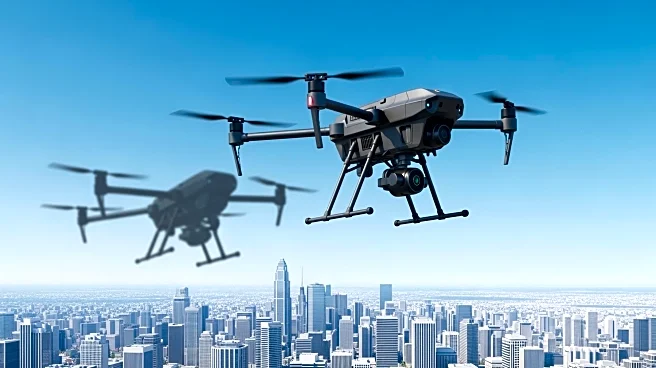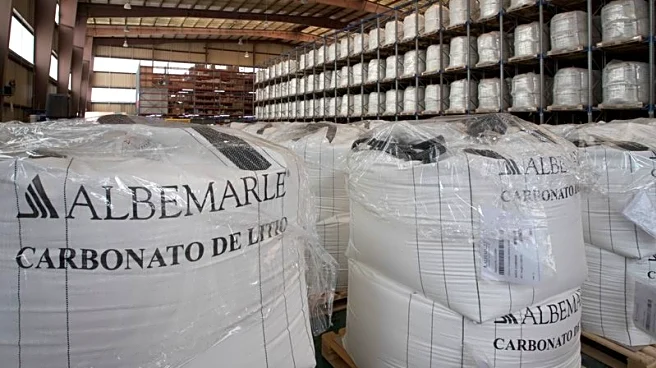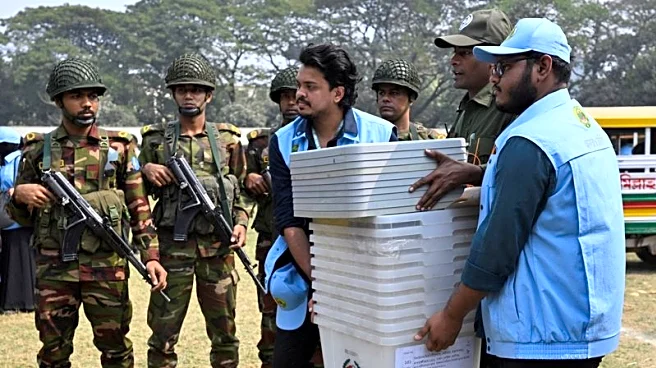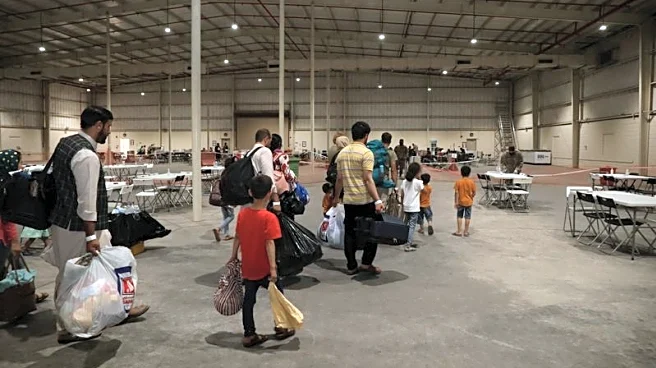What's Happening?
The Metropolitan Police has initiated a groundbreaking trial using drones as first responders to assist officers in attending emergency calls across London. This initiative, part of the National Police Chiefs’
Council drones program, aims to improve public safety by providing real-time intelligence more swiftly than traditional methods. The trial, which began in Islington, is set to expand to Hyde Park and the West End by the end of the year. Drones are remotely launched from the Met’s control room and can arrive at incidents within two minutes, streaming high-quality video to officers on the ground and in command centers. The drones are designed to assist in searching for missing persons, tracking suspects, and capturing evidence at crime scenes. They offer a quieter, cheaper, and more environmentally friendly alternative to helicopters while delivering similar operational benefits.
Why It's Important?
The implementation of drones as first responders represents a significant advancement in modern policing, potentially transforming how emergency situations are managed. By providing rapid, real-time intelligence, drones can enhance the efficiency and effectiveness of police responses, ensuring that the right resources are deployed quickly. This technological innovation could lead to faster resolution of incidents, improved public safety, and more efficient use of police resources. The trial reflects a broader commitment to modernizing policing through technology, which could set a precedent for other police forces globally. The success of this trial could influence future policy decisions regarding the integration of technology in law enforcement, potentially leading to widespread adoption of similar systems.
What's Next?
As the trial progresses, the Metropolitan Police plans to expand the use of drones to additional areas in London. The outcomes of this trial will likely be closely monitored by other police forces and policymakers. If successful, the program could be adopted more widely, influencing future strategies for emergency response and public safety. Stakeholders, including law enforcement agencies and government bodies, may consider the implications of drone technology on privacy and civil liberties, potentially leading to discussions on regulatory frameworks and ethical guidelines.
Beyond the Headlines
The use of drones in policing raises important ethical and legal considerations, particularly concerning privacy and surveillance. As drones become more integrated into law enforcement, there may be increased scrutiny over how data is collected, stored, and used. This development could prompt discussions on the balance between public safety and individual privacy rights, potentially leading to new regulations and oversight mechanisms. Additionally, the environmental benefits of using drones over helicopters could contribute to broader efforts to reduce the carbon footprint of public services.











